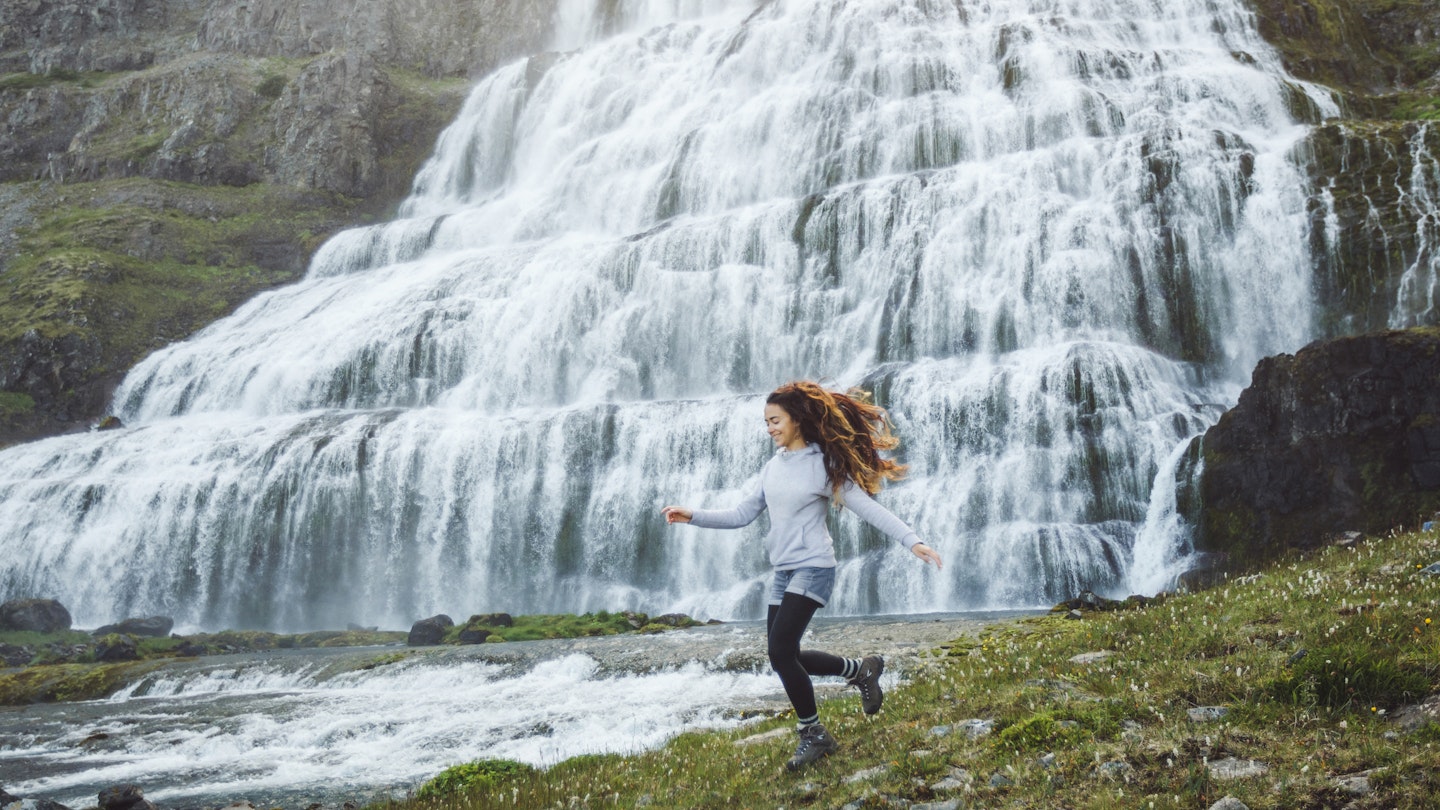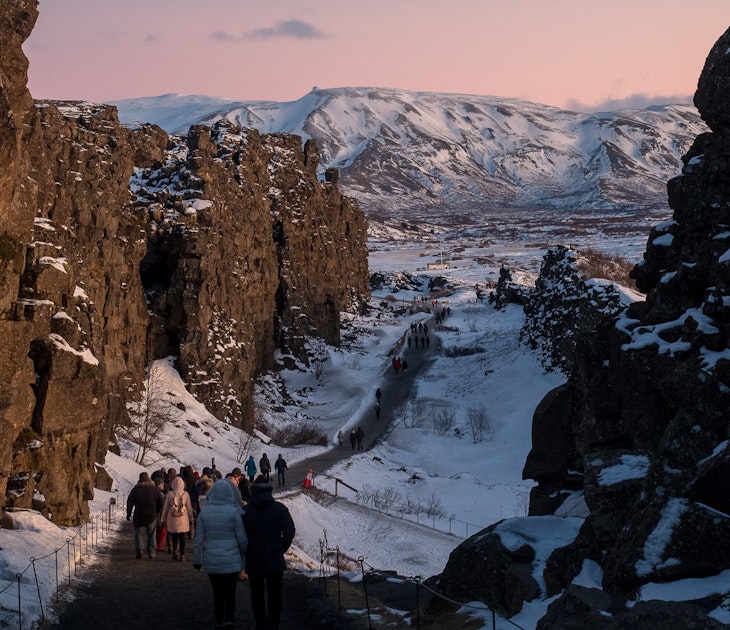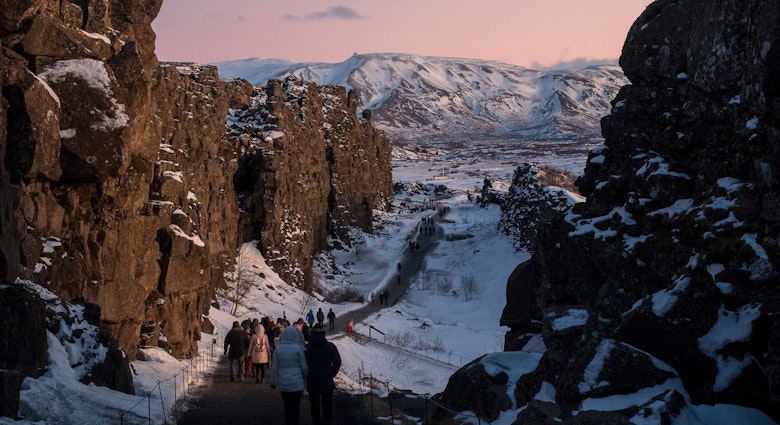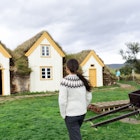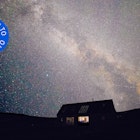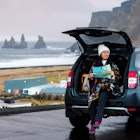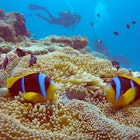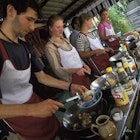Deserted beaches, ink-black cliffs, glacier-gouged valleys, snow-crusted peaks: the Westfjords encapsulates all the natural splendor you’d expect from Iceland – only without the crowds.
This fjord-slashed, mountain-studded, almost entirely treeless peninsula receives far fewer visitors than Iceland’s better-known regions, so it’s a fantastic place to explore if you’re looking for a place to escape. Covering more than 8,494 sq miles (22,000 sq km), but with a population of barely 7,000 people, it’s one of Iceland’s most sparsely inhabited areas (the official population density in the Westfjords is roughly the same as the Falkland Islands).
If it’s wildness you’re after, the Iceland Westfjords deliver in style. There are epic beaches tinted with mineral hues. There are great cliff faces teeming with sea birds. There are tiny fishing hamlets, mist-shrouded fjords, lonely headlands, and waterfalls that thunder with a sound and fury that stupefies. Geologically speaking, this is Iceland’s most ancient corner: it’s a place that feels mythic and mysterious, a land of lore straight out of the sagas.
The reason the peninsula remains relatively underexplored is, fundamentally, its remoteness. Although its southern edge can be reached in a day’s drive along the Ring Road from Reykjavik, you’ll need the best part of a week to reach its western or northern tips – assuming you manage to get there at all, that is. The Westfjords are challenging to navigate even in good weather, with many valleys and fjords connected via ferries, or high mountain passes that are clogged by snow for much of the year. Away from the main roads, much of the peninsula is rugged, pothole-pocked and unpaved, making a 4WD preferable, if not always essential. Villages (as well as petrol stations) are few and far between.
But the tough nature of travel here has an obvious upside. Few tourists have the time (or inclination) to explore, leaving the Westfjords mainly for Icelanders and the more adventurous traveler. Whether you come to camp or kayak, hike or bike, bird spot or whale watch – the Westfjords feel wild in a way precious few places do these days.
Here are the best things to do in the Westfjords, Iceland.
1. Get drenched by Dynjandi
If the Westfjords have a best-known sight, then it’s probably Dynjandi: the mighty, multi-leveled waterfall that tumbles down a 328ft (100m) cliff face and is, by both height and volume, the largest waterfall in the Westfjords. It’s the largest of a series of falls that you pass on the way up from the car park (a difficult-to-pronounce roll-call including Hæstahjallafoss, Strompgljúfrafoss, Göngumannafoss, Hrísvaðsfoss, Kvíslarfoss, Hundafoss, and Bæjarfoss). But it’s only when you stand under the main chute that you realize the massive force of the water smashing down from the surrounding snowcap. Its name translates to something like “the Thunderer”, and it’s apt: the waterfall can be quite deafening, every inch as impressive as better-known Icelandic falls like Gullfoss, Godafoss, and Dettifoss. Note that the drive up to the falls is along a potholed road: it can be heavy-going in wet weather.
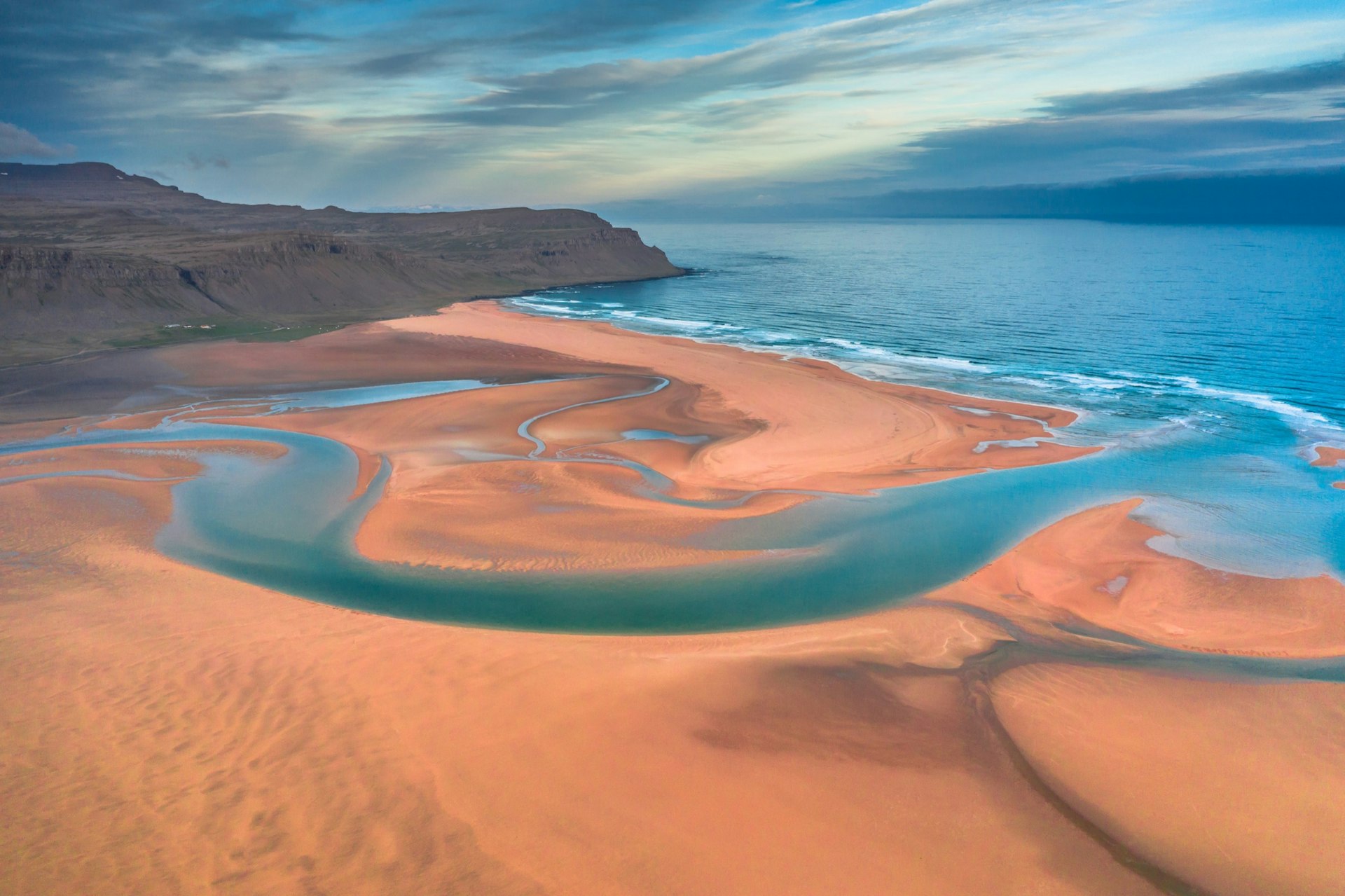
2. Watch the sunset on Rauðasandur
Out at the southwestern tip of the Westfjords lies Rauðasandur, a great 6-mile (10km) crescent of sand which, at least in Iceland, is a rarity: rather than the black volcanic sands you’ll find on many of the island’s other beaches, Rauðasandur’s sands shimmer with reds, pinks, golds, oranges, and roses that positively glow at sunset. All but deserted for most of the year, it’s an otherworldly place – catch it in the right light and it’s not hard to imagine you’re wandering along a beach on some extra-terrestrial planet. It’s reached by a bumpy, 6-mile (10km) side road off Rte 612. If lonely, end-of-the-world beaches are your thing, Breiðavík is also worth seeking out.

3. Photograph puffins at Látrabjarg
For twitchers, Látrabjarg must feel darn close to Valhalla. Every summer, thousands upon thousands of seabirds flock to these sheer, 1,312-foot-high cliff faces (400m) to roost, soar, squabble, babble and breed. Fulmars, kittiwakes, terns, gannets, razorbills and skuas are just a few of the species that can be spotted, but as ever, it’s the comical puffins that steal the show – their waddling charm and wonky flying are endlessly endearing (making it even harder to understand how Icelanders can bring themselves to consider them a delicacy – they’re best served smoked, apparently). Even if birds aren’t your thing, Látrabjarg is worth the journey: it’s Iceland’s most westerly point.
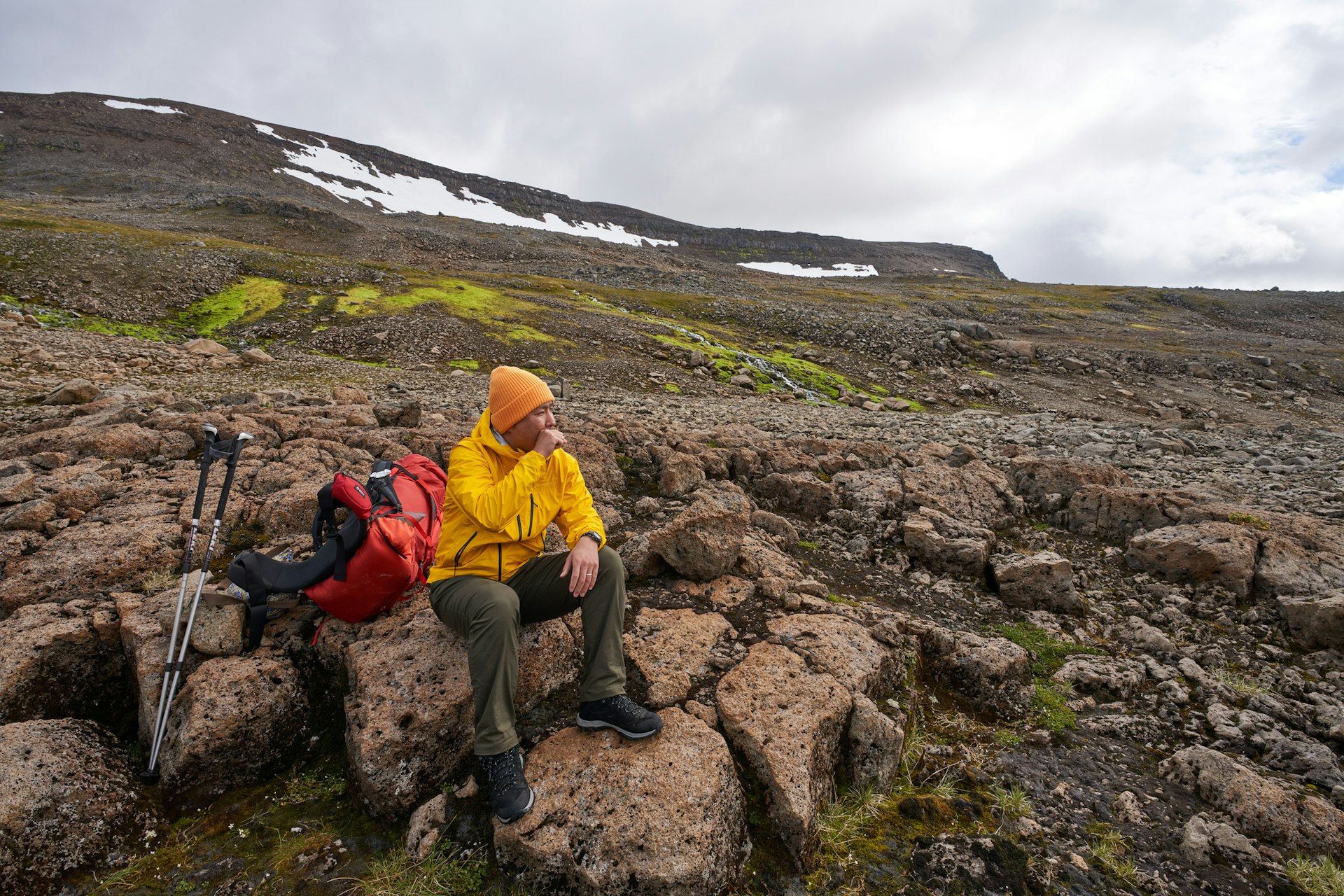
4. Hike into Hornstrandir
The Westfjords are wild, sure – but Hornstrandir is where wild becomes all-out wilderness. Since 1975, this rocky northern outpost of tundra, glacier, crag, and cliff has been protected as a nature reserve, and it’s the best place in the Westfjords – if not all of Iceland – to experience what the island was like before the first Viking settlers arrived.
The area’s pristine rivers, clifftops, beaches, mountains, and fjords are strictly protected and patrolled by rangers, and the only camping allowed is at designated campgrounds (there’s also a mandatory requirement to pack out all rubbish). Unsurprisingly, there are adventures galore here from hiking and climbing to whale watching: there are lots of good guiding operations, including Borea Adventures. If you’re fortunate, you might even spy an Arctic fox: Hornstrandir is one of the only places where it’s possible to spot Iceland’s only native mammal. Otherwise, guarantee spotting one by visiting the Arctic Fox Center in Súðavík.

5. Chill in the hot pot at Krossneslaug
Hot springs (both natural and artificial) are everywhere in Iceland, and the Westfjords are no exception: there are hundreds of places to take a hot dip, some well-known, others known only to locals. Few are as Instagram-worthy as Krossneslaug, a geothermally heated pool on the Strandir coast overlooking a rocky black beach straight out of an Ingmar Bergman movie. It’s quite a setting, and the water is balmy, emerging at a balmy 93˚F to 100˚F (34˚C to 38˚C).
6. Get cultural in Ísafjörður
Reykjavik it isn’t, but by Westfjords standards, Ísafjörður counts as a bustling metropolis. Home to about 2700 people, this small harbor city has some of the region’s most interesting museums. This includes the Westfjords Heritage Museum, and the quirky Museum of Everyday Life, which explores the day-to-day experiences of the people of the Westfjords through a mix of movies, oral testimonies, and possessions. The city also has some good restaurants and cafes: try Tjöruhúsið for seafood or Edinborg for a local brew.
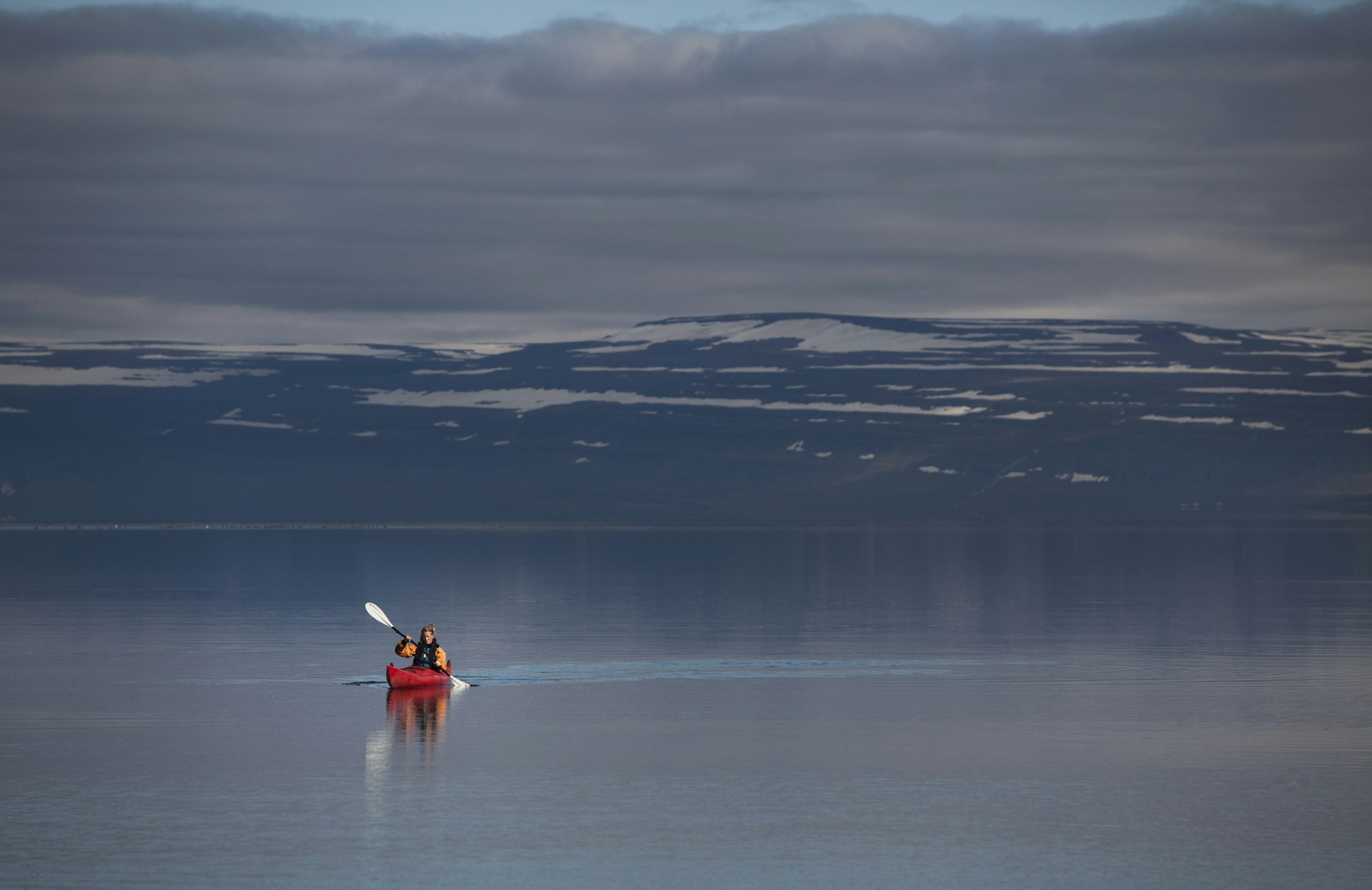
7. Kayak across Ísafjarðardjúp
Ísafjarðardjúp is the largest – and many would say most impressive – of the many fjords that make up the Westfjords. Bounded by Ísafjörður to the south and Hornstrandir to the north, it’s a classic slice of glacial scenery. Several operators offer guided, multi-day kayaking trips along the fjord, camping at remote beaches and headlands – often you’ll also spy sea eagles, seals and sometimes whales as you kayak across the bay. The island wildlife sanctuary of Vigur is a popular target, particularly for puffin watchers. It’s also the location of the oldest lighthouse in Iceland, built in 1837.

8. Learn about the Westfjords’ seafaring past
In little Bolungarvik, the evocative Ósvör Maritime Museum explores the salty history of the Westfjords. Back in the age of the Vikings, the people of the Westfjords eked out a tough living from the sea, fishing, hunting and trading, creating a maritime culture that endures to this day. This living museum has some fascinating exhibits, including a collection of turf-and-stone fisher huts, vintage rowing boats and a salt house where the catch was dried. The highlight, though, is the salty old guide who shows you around, regaling you with seafaring lore while dressed in a traditional lamb’s leather smock.

9. Saddle up on the Þingeyri peninsula
The remote Þingeyri peninsula is best explored on two wheels (or four legs). A rough dirt track snakes along the coastline, tracking the southern edge of Dýrafjörður to the Viking settlement at Haukadalur. It’s one of the most stunning tracks in the Westfjords, perfect for an adventure by mountain bike or, better still, in the saddle of one of Iceland’s famous stubby-legged horses. In good weather, you can pedal or clop onwards to the lonely lighthouse of Svalvogar. Bikes and horseback riding tours can be arranged in the small village of Þingeyri.
10. Visit a herring factory turned art gallery
Herrings were once the lifeblood of Reykjarfjörður, but the fishing glory days are long gone. Enterprising locals have since turned the area’s old processing plant into a contemporary art gallery, The Factory, displaying adventurous paintings and striking sculptures by leading Icelandic artists. It’s a curious experience to find a cutting-edge gallery in the middle of the Westfjords, but it works brilliantly.

11. The Westfjords is where to see northern lights in Iceland
With practically zero light pollution, the Westfjords is one of the best places to watch the Northern Lights (aurora borealis) in Iceland. Peak aurora activity occurs between the darkest months of October and March, but you also need clear skies to see them – which can be a problem in the Westfjords. For maximum chance of seeing the aurora, it’s worth contacting a specialist guiding company, who have access to the latest weather forecasts and detailed aurora predictions: Wild Westfjords is a reliable operator. Or if you have time to spare, just hang around a while: chances are the aurora will make an appearance sooner or later.

12. Take a 4WD safari on Iceland’s scariest road
Driving along Kjaran's Avenue from Patreksfjörður, you can’t help but wonder what kind of lunatic thought building a road here was a good idea (as the name suggests, it was a local chap called Kjaran; he carved out the road in his spare time with a bulldozer). Not that it’s really a road at all: at best, it’s more like a gravel track, flanked by sheer mountain above and sheer cliff below, teetering over drops that’ll have your stomach turning somersaults. Along the way, the road skirts the foot of Kaldbakur, the highest mountain in the Westfjords, which you can summit when the weather permits. The road should only be attempted with an experienced guide: contact Westfjords Adventures.
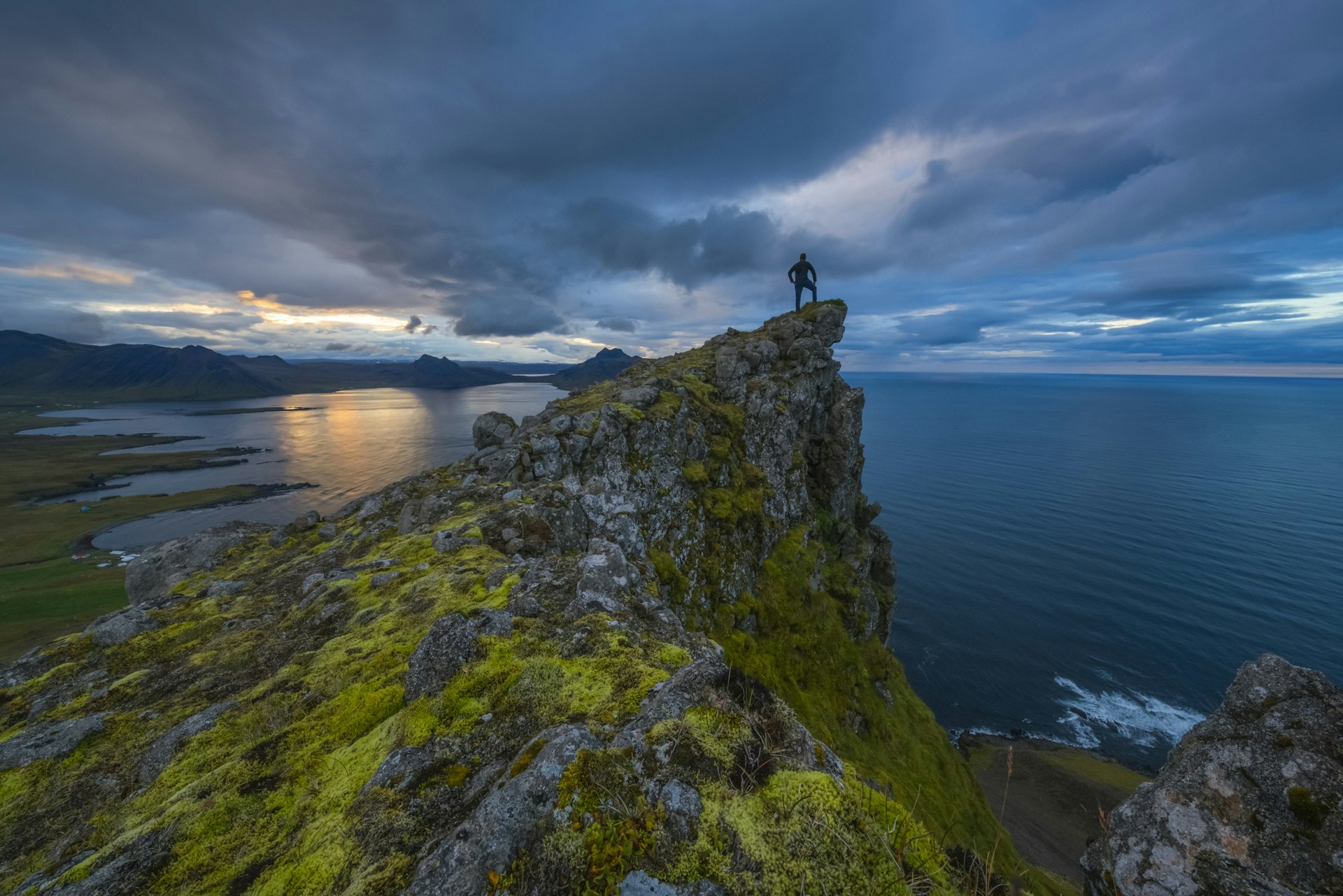
13. Take a road trip along the Strandir coast
In the Icelandic imagination, the isolated Strandir coast is said to be the home of trolls, elves, spooks and sorcerers – but these days most people go there to experience nature in its rawest state. The eastern flank of the Westfjords has some of the region’s most dramatic scenery: big mountains, big cliffs, big fjords, in fact, big nature in every sense. The rough, bumpy road from Hólmavík marks the beginning of the roughly 150-mile (240km) drive to Norðurfjörður, an isolated and largely deserted road where you could go several hours without passing another car. Pocked with coves and beaches where the only sunbathers are seals, it feels about as far from the outside world as it’s possible to get: cellphones and wi-fi don’t work here, and it’s finer for it.
14. Get spooked at the Museum of Icelandic Sorcery and Witchcraft
The Strandir coast is a pretty strange place, so it’s not hard to see how sorcery and witchy activities found their way into the area’s folklore. This curious little museum in Hólmavik explores the history of the occult, with exhibits and artifacts delving into the facts (and more often than not fiction) behind the legends. There are some deeply odd things on show here, from blood cups to magical staves, witches’ brooms and grimoires (spellbooks). There are also some troubling tales of the witch-burning that swept through the Westfjords in the 17th century.

15. Don’t hike, take a quad bike
If you want the views without the hard work, a quad bike makes short shrift of even the most rugged trail. ATV Ísafjörður offers two-hour trips in custom ATVs, accessing trails that are off-limits to pretty much any other form of vehicle. There are super views of the fjords, but expect to get muddy and chilly: even a well-insulated onesie won’t manage to keep out the Icelandic cold after an hour or two.
